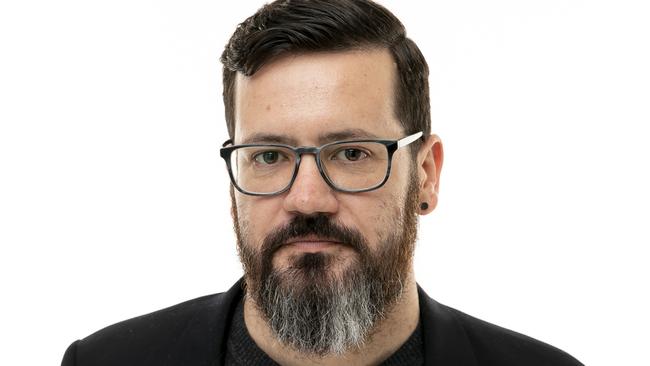Health Insurance: Comparison websites and health funds, what they don’t show you
Health fund comparator websites are forcing up the price of your health cover, as they don’t compare all the options.
National
Don't miss out on the headlines from National. Followed categories will be added to My News.
Health fund comparator websites are forcing up the price of your health cover, as they don’t compare all the options and won’t send you to the cheapest provider.
There are 37 health funds in Australia, but Compare the Market only analyses 11 and iSelect looks at 8.
A News Corp investigation has found at least one of those heavily-promoted comparator services did not include the cheapest health funds we identified in our comparison service.
If you were trying to purchase a Gold cover policy in certain states and territories iSelect would not offer you the cheapest Gold policies from St Luke’s or Mildura health Fund.
The commissions they charge are likely to force up the premiums at the funds they work for.
“People aren’t likely to get the best deal if they go to the commercial comparison sites; with a service like Compare the Market, they only compare a small selection of the market, and the fees that they charge for the health insurers to appear and their results adds upward pressure to the cost of private health insurance every year,” Choice’s Dean Price told News Corp.
Compare the Market’s website reveals it charges funds a standard fee worth 25 per cent of the first year’s premium, paid upfront, and 6 per cent of the second year premium, paid for those customers who remain with their fund into the 13th month.
The website could profit by as much as $1147 on the signing of a new family Gold health fund policy.
iSelect refuses to say how much it charges but does admit “iSelect receives a referral fee from health insurers when a customer purchases a policy”.

Medibank, which is among the cheaper of the big four health funds, does not participate in any comparator services.
“Aggregators play a role in the industry but it’s important for customers to know that not all products and insurers are available on these sites,” Medibank Chief Customer Officer David Koczkar said.
The Private Health Insurance Intermediaries Association’s CEO Christopher Zinn said more than two million Australians were helped with health insurance through comparison services or brokers in the last financial year resulting in 191,000 membership sales.
“The sales equated to approximately 25 per cent of the total private health insurance sector with more than a quarter (53,000) of these consumers new to the market,” he told News Corp.
WHERE BRONZE HEALTH COVER COSTS MORE THAN GOLD
Bronze health cover products that exclude crucial procedures like birth, joint replacements, heart and cataract surgery can cost more than Gold products covering everything.
News Corp’s analysis of health fund premiums has found common sense does not apply to the search for the best health fund deal.
We identified at least 15 Silver products that excluded certain procedures which cost more than the cheapest Gold cover we identified.
More than 60 Silver Plus products cost more than the cheapest Gold product we could identify.
While in some cases the excess levels on Bronze and Silver policies were lower than on the cheapest Gold product, the top cover policy covered every type of procedure.
“We’ve found in many states there are a Silver plus policies that are more expensive than Gold policies so you’d be paying more and getting covered for less,” Choice’s health spokesman Dean Price said.
Experts have warned older people opting for Silver cover that excludes pregnancy could be inadvertently self-selecting into higher priced cover.

They were joining a product favoured by other older Australians who, by virtue of their age, were more likely to claim and actuaries would price these products higher.
Our analysis also found huge variations in the prices for policies in each tier.
Gold policies ranged from $129 per month for a family up to $759.
Silver Plus policies ranged from $123 to $598, Silver policies from $155 to $474, Bronze policies ranged from $122 to $340, Bronze Plus $105 to $374 and the price of Basic cover ranged from $74 a month for families to $249.
Price was not the only factor in health cover.
“It’s important to look at inclusions, hospital and provider networks, gap payment arrangements and potential out of pocket costs to understand the value of a product,” Bupa’s health insurance managing director Emily Amos said.
Generally higher excesses can reduce the cost of policies but we found some high-excess policies with higher premiums than covers with a lower excess.
Other factors people may want to investigate include whether the fund offers age-based discounts for customers between 18-29, a private room guarantee, accident inclusion and travel and accommodation support for customers commuting more than 200km for hospital and medical treatment.
If possible you should check what percentage of medical services had no gap attached.
Originally published as Health Insurance: Comparison websites and health funds, what they don’t show you



